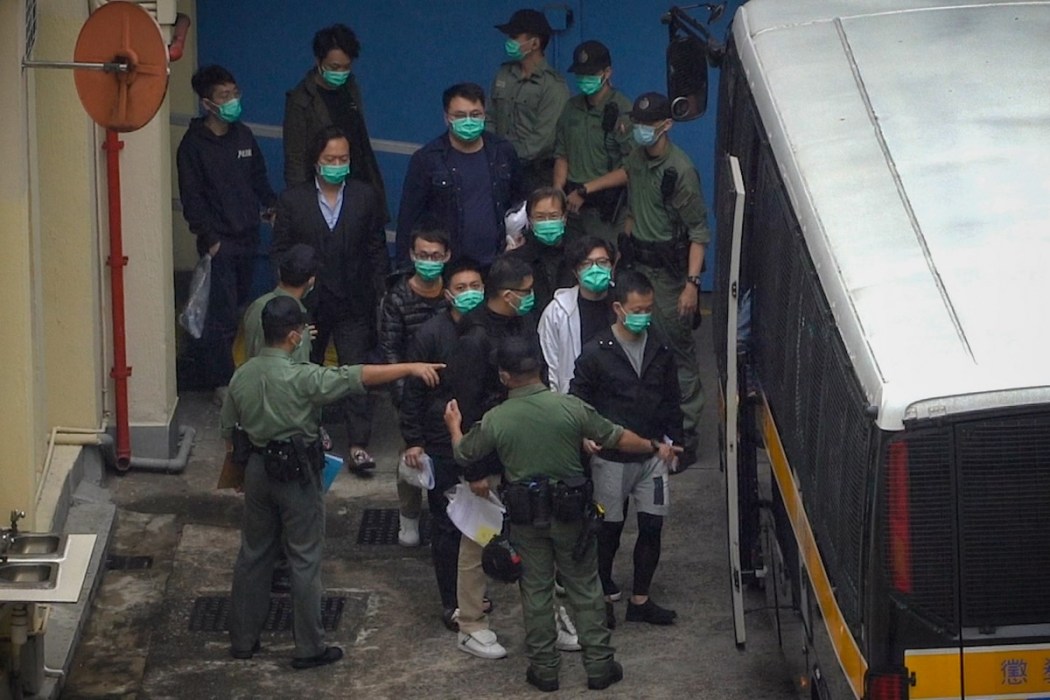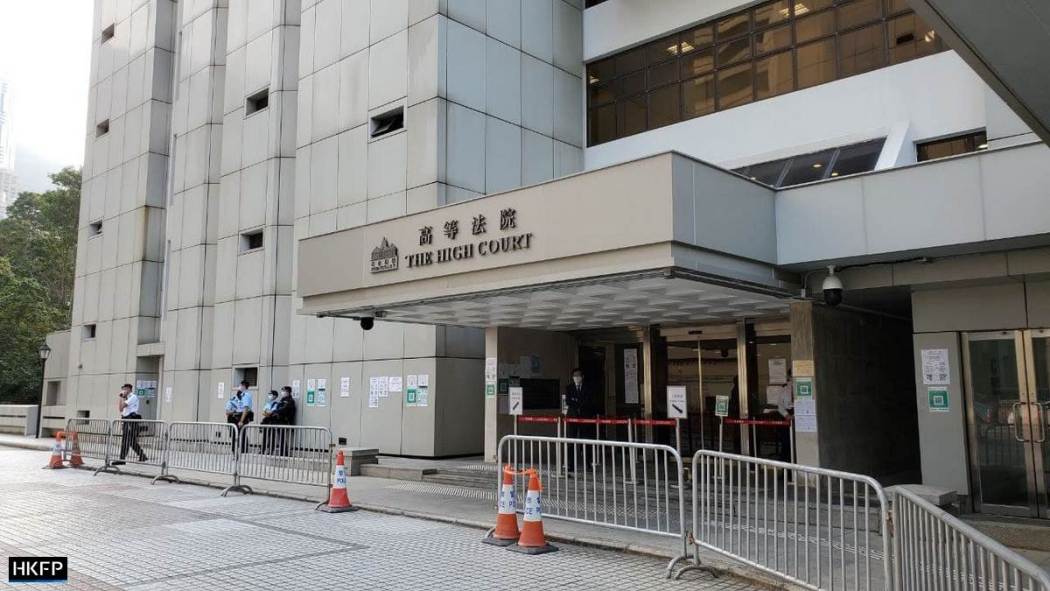The Hong Kong judiciary on Thursday released a High Court judge’s written reasons for denying bail to two of the 47 democrats facing national security charges following an appeal by prosecutors, but granting it to two others.

Former lawmaker Jeremy Tam and Eastern District Councillor Andy Chui have, like most of their fellow accused, been in custody since February 28 for taking part in a primary election organised by pan-democrat parties in July 2020. They were denied bail in March.
But High Court judge Esther Toh upheld a lower court’s decision to grant bail to District Councillors Sze Tak-loy and Shun Lee, who were released on March 15.
The 47 democrats are accused of conspiracy to commit subversion under the national security law, an offence punishable by life imprisonment, over their involvement with the primary organised by democrats to select candidates for an upcoming Legislative Council (LegCo) election. The election was later postponed on the grounds of coronavirus.

Prosecutors say plans by some of the democrats to secure a majority in LegCo, and then vote down the budget to try to force the chief executive to quit, amounted to subversion.
Only 11 of the 47 have so far been granted bail, which is far more difficult to secure under the Beijing-imposed security law. A judge must be satisfied there are sufficient grounds to believe that the defendant will not continue to commit acts endangering national security.
The law has created a “specific exception” to the general rule in favour of granting bail, Hong Kong’s Court of Final Appeal ruled in January.

In her reasoning, Judge Toh wrote that she decided in favour of the prosecution’s challenge in Tam’s case after considering the arguments of the Deputy Director of Public Prosecutions Maggie Yang.
Contacted by the US consulate
Tam, a former Civic Party member and commercial airline pilot, co-signed a letter addressed to the US Senate and House of Representatives seeking passage of the Hong Kong Human Rights and Democracy Act, Toh wrote in her written reasons for denying bail to Tam, citing submissions by the prosecution. His “Facebook pages also showed his strong conviction and enthusiasm to undermine the Hong Kong Government,” it read.
Tam’s defence counsel argued that he had quit politics and instead devoted time to his family following his resignation from LegCo. As evidence, the defence submitted three emails Tam received from the US Consulate in Hong Kong seeking to meet between late 2020 and early 2021, but which Tam never responded to. However, the prosecution argued that the last email Tam received “actually invited [Tam] to ‘catch up’… he was still a man of interest to foreign powers,” Toh wrote.

Regarding the decision to deny Andy Chui bail, Toh cited evidence submitted by the prosecution, which included a YouTube video Chui posted shortly after the enactment of the National Security Law, which claimed that Chinese military vehicles had been sent to the streets of Hong Kong. Chui made “unfounded assertions using emotive and antagonising language, even after the enactment of the NSL, obviously with a view to causing fear and inciting hatred,” Toh cited the prosecutor as saying.
Chui’s defence counsel submitted that the video had few viewers and that he had “ceased to be politically active” after the primaries even as he continued to fulfil his duties as a district councillor. Chui also promised not to post political content online if granted bail.
Bail granted to two
Separately, bail applications by District Councillor Shun Lee and Sze Tak-loy were both granted. Toh cited arguments by Lee’s defence counsel, who said Lee “has no local or international profile,” “only got about two percent of the votes in the Primaries,” and “belonged to the more moderate group of young persons propelled by events to try to get into LegCo.”

“I can see from his short time as a District Councillor that he had helped the community and in doing so had also cooperated with several government departments,” Toh wrote. “He has not said or done anything in relation to the original agreement.”
Toh said she had considered defence arguments that Sze lost in the primaries. Although the prosecution alleged that Sze “had used strong words against the Hong Kong government,” the defence argued that this was “electioneering rhetoric” and that since losing in the primaries, Sze had not said anything further.
Support HKFP | Policies & Ethics | Error/typo? | Contact Us | Newsletter | Transparency & Annual Report | Apps
Help safeguard press freedom & keep HKFP free for all readers by supporting our team
























